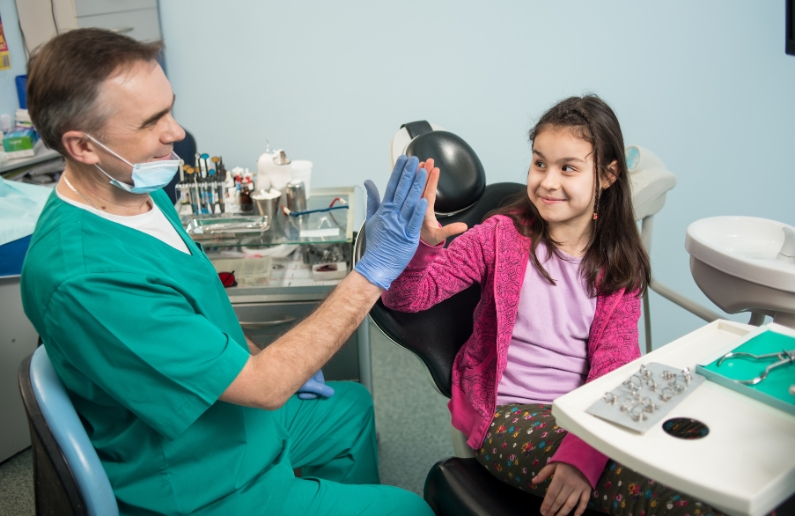4620 East Douglas, Suite 100 Wichita, KS 67208

Keeping your child’s smile healthy starts early. Good dental habits in childhood can protect teeth long after the baby teeth fall out. While brushing and flossing matter, they’re only part of the puzzle. The best pediatric dental care also includes daily choices, consistent routines, and support from the right professionals. This guide shares 10 fact-based tips that every parent should know—straight from a pediatric dentist.
These insights are practical, research-supported, and meant to help you care for your child’s teeth with confidence.
1. Start Oral Hygiene Early
You don’t have to wait for the first tooth to begin dental care. Gently wipe your baby’s gums with a soft, damp cloth after feedings. Once teeth erupt, use a small, soft-bristled brush and a smear of fluoride toothpaste. Starting early helps children become familiar with daily mouth care and reduces the risk of early tooth decay.
2. Be Consistent with Brushing
Children need help brushing their teeth properly until at least age 6 or 7. The American Dental Association recommends brushing twice a day for two minutes each time. Choose a toothbrush designed for their age and replace it every three months or sooner if the bristles fray.
3. Use the Right Amount of Fluoride
Fluoride strengthens enamel and protects against cavities. Use a rice-sized smear of fluoride toothpaste for children under three and a pea-sized amount for kids aged three and up. Don’t rinse right after brushing—it’s best to let the fluoride stay on the teeth longer.
4. Make Dental Visits Routine
Schedule your child’s first dental visit by their first birthday or when their first tooth comes in. After that, visits every six months help track development, catch concerns early, and allow kids to become comfortable at the dental office. Seeing a pediatric dentist in Wichita can make visits more enjoyable and tailored to your child’s needs.
5. Limit Sugary Drinks and Snacks
Sugars feed cavity-causing bacteria. Offer water instead of juice or soda, and save sweets for occasional treats. Avoid sticky snacks like fruit gummies, which cling to teeth and raise cavity risk. Balanced meals with calcium-rich foods like yogurt and cheese support strong teeth and gums.
6. Teach Proper Flossing Habits
Flossing removes plaque and food debris between teeth where brushes can’t reach. As soon as two teeth touch, it’s time to start flossing daily. Many kids need help with flossing until around age 10. Floss picks designed for small hands can make the task easier and more enjoyable.
7. Avoid Using Bottles or Sippy Cups at Bedtime
Letting your child sleep with milk or juice can lead to “baby bottle tooth decay.” If they need a drink at night, stick to plain water. This simple step protects their enamel and reduces the risk of cavities forming while they sleep.
8. Watch for Signs of Tooth Grinding
Some children grind their teeth in their sleep, a habit known as bruxism. It can wear down enamel or cause jaw discomfort. If you hear grinding or notice flattened teeth, mention it at your next dental visit. Your dentist can help monitor or manage the issue.
9. Encourage a Mouth-Healthy Diet
Offer crunchy fruits and vegetables like apples and carrots—they naturally clean teeth and stimulate saliva, which helps wash away food particles. Avoid frequent snacking throughout the day, as this keeps acid levels high and enamel at risk.
10. Set a Positive Example
Children copy what they see. Let them watch you brush and floss your teeth each day. Make oral care a family routine. Turn brushing into a shared activity with music or a chart to track habits—it turns something routine into something fun.
Creating a solid dental routine isn’t complicated, but it does take consistency. Small daily habits, supported by good nutrition and regular checkups, can make a lasting difference in your child’s oral health. A few minutes a day now can prevent pain, costs, and problems later.